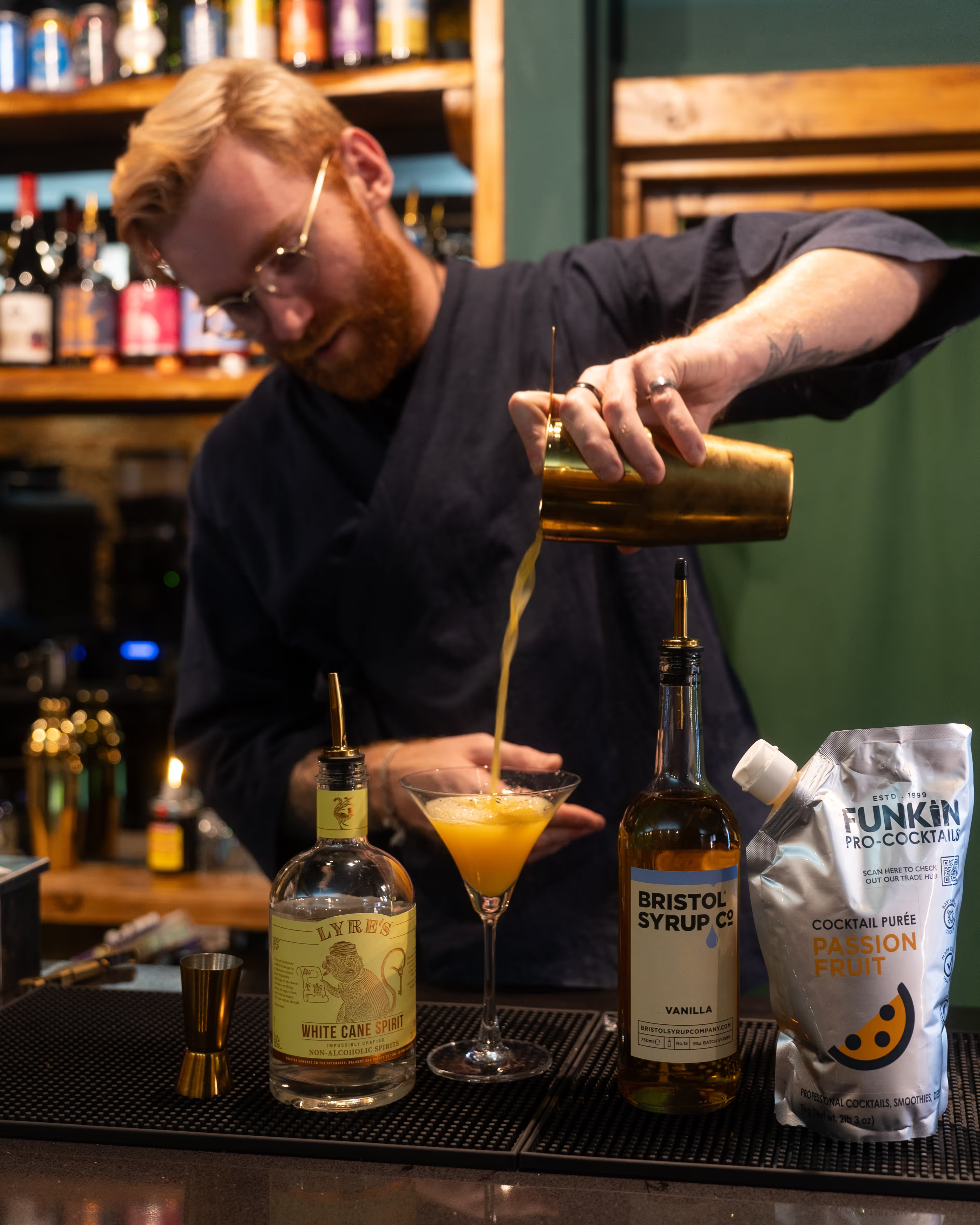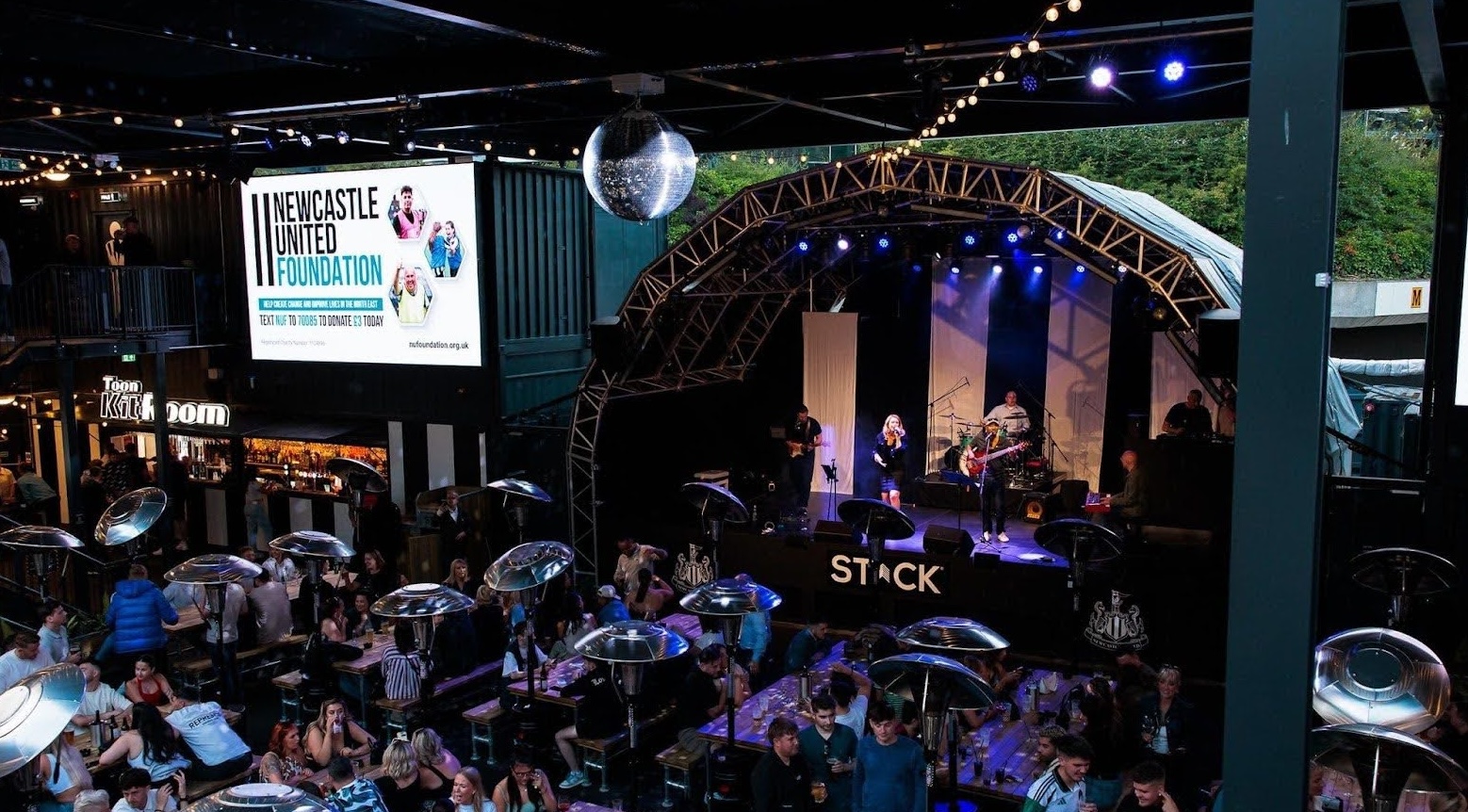-2.avif)
Dry January: The impact on hospitality venues
Dry January poses challenges for hospitality venues as customers cut back on spending and alcohol, but it also presents opportunities to adapt to alcohol-free options and social events.
January is notoriously challenging for hospitality venues. After the holiday period had ended, which was heavy on the bank account and the units consumed by guests, bars, pubs, and restaurants faced a quiet period.
Since Dry January started in 2013, the campaign has grown significantly and encourages people to prioritise health and reduce alcohol intake. While this initiative has numerous personal health benefits, it undeniably presents challenges for hospitality venues, often starting their year on the back foot.
Dry January doesn’t have to mean avoiding pubs altogether. According to Propeller, an estimated 7.8m pints of non-alcoholic beer will be sold in pubs this month, underscoring a growing market for alcohol-free options. The rise of high-quality alcohol-free alternatives allows venues to cater to guests participating in Dry January while still offering an enjoyable drinking experience.
Pub culture is deeply ingrained into social lives, but local pubs can’t be abandoned during January. Hospitality venues are the social hubs in the local community and provide much-needed social interaction.
This year is especially important for hospitality venues to start the year off strong. Their overheads are set to rise in April following a 1.2% National Insurance hike, a minimum wage increase, and a business rate relief reduction, all announced in the Autumn Budget.
After the festivities, it makes sense for customers to be more hesitant when going out in January, as they look to drink and spend less. But with 412 pubs across England and Wales calling last orders for good in 2024, a better January than forecasted is essential.
With fewer customers coming through the doors and lower average spending per guest, many venues face significant revenue dips. Data from CGA highlighted that bars experienced a sales decline of 13.6% from December, whereas pubs experienced a 1.5% increase from the year prior.
To attract customers in January, hospitality venues’ offerings should step away from being alcohol-led and focus more on social entertainment, giving guests a reason further than alcohol to come out.
One of those experiences to capitalise on is social events, particularly those embracing the alcohol-free trend. Hinterland, Manchester’s only alcohol-free bar, has capitalised on this trend by offering unique experiences that attract younger, sober-curious audiences. The rise of alcohol-free venues reflects broader societal shifts, with a third of 16-24-year-olds reportedly abstaining from alcohol altogether.
Julie Tippins from the DHP Family highlighted this trend at the 2024 Night Time Economy Summit, noting the significant growth in the non-alcoholic market. Venues like Hinterland prove that removing alcohol from the equation doesn’t mean sacrificing atmosphere or fun. Instead, they’ve built a thriving business model around inclusivity and creative programming.
Appeal to patrons’ desire for connection. Many people still crave the social aspects of going out, even if they’re skipping the booze. Something Hinterland has excelled at, with a diverse range of events, including poetry, storytelling, philosophy, and death cafes.
GigPig spoke with the co-owner of Hinterland, Stephen Jeffreys about the importance of these social events to the bar offering. He said: “Social events are really important for us. We wanted to embody the idea of a sustainable community centre. Pubs used to play that role, and they still do, but the role that they play is more of a party and people going out getting drunk, which is fine, but not something you want to do too much.
“It works well that we put on these really beautiful events, and we get as many people as possible to come and enjoy the event, enjoy the space, enjoy the vision of what we're doing.”
That initiative is providing great business success to the community interest company, who work closely together with charities, members and the community to give back to them, as they consistently sell out their free events.
Hinterland excels in creating incredible tasting alcohol-free cocktails, showcased on their Instagram, which showcases how removing alcohol from the equation doesn’t mean sacrificing atmosphere or fun.

“The alcohol-free drinks are really important and they're showing people what’s available to help facilitate connection between people,” Stephen added.
The concept of Hinterland came about following Stephen’s personal journey as a recovering alcoholic, and the 31 days of Dry January are important for him to raise awareness around alcohol consumption.
The owner said: “It's all about spreading more awareness and alcohol is by no means a bad thing, but the usage of alcohol can be problematic. If you do think you want to cut back in January, it doesn't mean that you're losing out on things.
"It’s that excitement for people to come out and realise that dry January isn't boring. There are lots of tasty drinks, and there are lots of events for you to go to. We're not taking something away, we're adding to it. That's vital and seems to be very popular with people.
"My interest in sobriety is that it is an enjoyable experience. A lot more of what we're trying to do in Dry January is hosting those social events to create connections between people and show that it doesn’t have to be boring.”
Whilst challenges arise from January sales and customers moving more towards breaking away from drinking alcohol, it allows you to lay down the essential frameworks for the future trend of alcohol-free pub visits.
Another way to encourage guests to visit venues is by facilitating live music, one of the most effective ways to drive footfall. GigPig makes booking live music and entertainment easy. Venues will instantly have access to the UK’s largest-growing artist marketplace, with all the tools you need to book live music through a user-friendly system.
As a venue using the platform, they will instantly have access to all the tools they need to book and manage gigs with ease to streamline their live entertainment.
GigPig is designed specifically to empower hospitality venues, giving them direct access to save time and reduce booking costs by up to 80%.
The benefits of live music were defined in the Live Music Index, which discovered that regularly hosting live music can increase venues’ sales by 33%, footfall by 36%, and spend per visit can rise by up to 64% - the perfect antidote for a drop in sales in January.
While Dry January poses challenges for hospitality venues, it also offers an opportunity to adapt and innovate. By embracing trends like alcohol-free drinks, live entertainment, and social-focused events, venues can build a more resilient business model that appeals to a diverse audience. These efforts not only help navigate the quieter months but also establish a foundation for long-term success in a rapidly evolving market.
So this January, consider raising a glass of Lucky Saint or Nozeco at your local pub. Supporting hospitality venues during the quieter months ensures they continue to serve as vital social hubs for years to come.
Related news


.jpg)
.jpg)

.svg)

